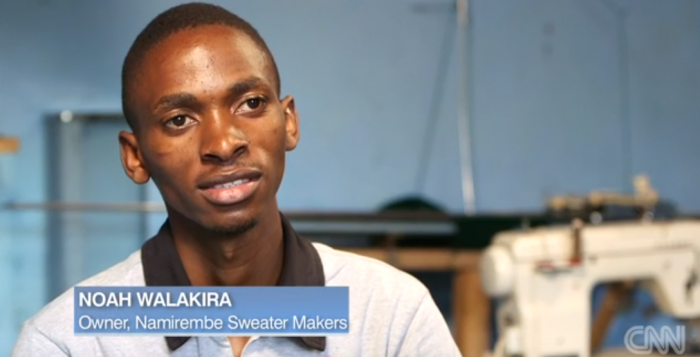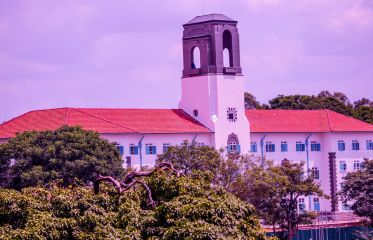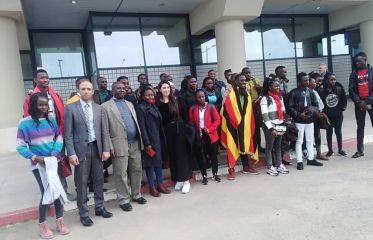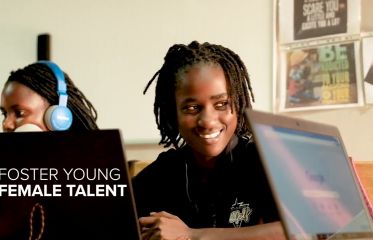Breaking News
- Flexible Remote Work Opportunity for University Students: Earn $100–$250 Per Month ...Read More
- Ministry of Education and Sports Azerbaijan Government Scholarships For 2025-2026 Academic Year ...Read More
- Government Sponsorship Undergraduate Admission Lists 2025-26 for Makerere University ...Read More
- Ministry of Education And Sports: Egyptian Government Scholarships 2025-2026 Academic Year ...Read More
- Ground Breaker Full Scholarship for girls to study Software Engineering 2025 July Intake ...Read More
- Tony Elumelu Foundation Entrepreneurship Programme (TEEP) 2025 for young African Entrepreneurs ...Read More
- DESIGNING FUTURES 2050 International Design Competition 2025 (€15,000 prize) ...Read More
- Ground Breaker Full time Scholarship for girls to study Software Engineering 2025 Intake ...Read More
- Ministry of Education And Sports Algerian Vocational Training Scholarships for 2024-2025 AY ...Read More
- Ministry of Education and Sports Advert for the Algerian Government Scholarships for 2024-2025 ...Read More
Noah Walakira, the 23 year old CEO of Namirembe Sweater Makers

With statistics of youth unemployment seemingly escalating by the day in Uganda, 23 year old Noah Walakira decided not to be another addition to this ugly statistic. What started out as a simple childhood mimic has since grown into an award winning venture, the Namirembe Sweater Makers. From individual clients, the company is currently partnering with 45 schools and 3 companies.

Who is Walakira
Born on 4th July 1992 to Mr and Mrs Joseph and Betty Kabanda of Mengo, a Kampala suburb, Walakira is the third born of seven children.
Growing up from a humble background, he watched as his elder siblings dropped out of school and this was slowly becoming real to even the young ones including him.
“My father’s income drastically dropped after he lost his job. He struggled to even see me through primary school.” he says.
How he started
After his primary seven exams in 2007, Walakira went to spend the holiday with his grandmother in Luweero, one of the districts in central region of Uganda.
The teenager at the time was rather fascinated at how his old granny was using threads to come up with something to wear.
“It was very strange to see her make sweaters .But even then, I couldn’t imagine a sweater coming from my remote village in Luweero. All I knew was sweaters were bought in shops not at home.” he said in an earlier interview with New Vision.
He became quite interested in the art and by the time the holiday came to an end, he had grasped the skill himself. He started out helping his grandmother and instead of spending a month knitting one sweater, it was now taking just three weeks. This would be sold off for between sh10, 000-sh15, 000.
Even after returning to Kampala for secondary school, Walakira did not give up knitting sweaters. He used the little money that his grandmother had given him as pocket money to buy threads.
He started by making sweaters for children in his neighbourhood in Mengo( a Kampala suburb). This could help him buy scholastic materials to supplement on his parents efforts.
Diversifying the business
From making only sweaters, Walakira started to make a full set of baby wear which comprised of a sweater, trouser or shorts plus stockings all knitted from threads.
He started saving up for a knitting machine which was costing about sh250, 000 at the time. This was to help him work faster than he with mere hands.
By January 2008, he had saved up at least 80% of the money for the knitting machine and being a regular client in Kiyembe (a city hub for all sewing and knitting activities), he was able to secure the machine at 20% less which he paid off later in installments.
He had to take three weeks off to learn how to operate the machine from one of the ladies in Kiyembe who was already using the same.
With the machine, Walakira was able to secure his first major contract from a nursery school in his neighbourhood to supply them with sweaters.
He would put in extra hours after school and most of the weekend to knit the sweaters. He would then take them to Kiyembe for the finishing touches because he didn’t have the machine for that.
Walakira was now saving up for a sewing machine to cut on the cost of having to take his products to town for the finishing processes. And as he continuously interacted with the people who were sewing, he was slowly learning how the machine works.
In 2009, his older siblings and two of his friends joined him. He trained them on how to knit. All this while, Walakira was working from home and when his friends joined, they turned one of his father’s rental rooms into their workshop.
During his senior four vacation, he was able to buy the sewing machine and also trained his mother on how to use it.
His peers started getting excited about the growing business and would flock their home to learn how to. They eventually started working as part time workers every time he had a big order.
With the machines, a sweater was now taking just 30 minutes unlike before when it would take him days.
By 2011, the group had grown to 15 members, most of whom were his peers and the knitting machines had accumulated to four with one sewing machine.
Formalizing his work
In 2012, they registered the initiative as a community based organization named Namirembe Sweater Makers.
Since they were registered, they were able to benefit from KCCA’s community development fund in 2013 worth sh5m which helped them to buy 9 more knitting machines, one sewing machine and did maintenance for the existing ones.
After senior six in 2012, he opted not to join University but first grow his business and in any case, he was now paying his school fees.
Venturing in uniforms
With continued interaction with school administrators, they started suggesting to him an idea of having a full uniform set and not just sweaters. He toyed with the idea for some time wondering how to venture in.
They started off as middlemen working with the other traders in Kiyembe who were already dealing in such products and then earning a commission.
At the beginning of the 2014, with savings from the business, the team ventured into uniforms.
Building a client base
Around 2012, the team engaged in an aggressive campaign to get ne w clients for their business.
“We started going out to schools with proposals for supply of school sweaters. We sold them the idea of take orders and pay on delivery which helped us hook a few schools,” he says
“We made sure we delivered because this was the only way to prove that we were not just young boys dreaming big,” he says.
There client base expanded with clients coming in from as far as Juba, Rwanda and Tanzania.
They have also ventured into trainings for different organizations in knitting and sewing skills at a fee.
Future plans
He is currently saving up for an industrial knitting machine that can make 4 sweaters in 15 minutes to help them grow their capacity to supply different parts of the country.
Awards
Walakira was one of the finalists of the Anzisha Prize, an award for young entrepreneurs who have developed and implemented innovative solutions to social challenges or started successful businesses in their communities. This came with a cash prize of $2500(about sh6m at the time).
In 2015, he came 1st runner up for the Mulwana innovation and entrepreneurship award by the Private Sector Foundation Uganda (PSFU).
Source * pakasa.co.ug
Top Courses Currently Admitting
-
Certificate in Accounting and Finance
Web Info-net institute of Technology
-
Bachelor of Design & Ceramics
Ndejje University
-
Certificate in Computer Science
Web Info-net institute of Technology
-
Bachelor of Science in Building Economics
Kyambogo University






























